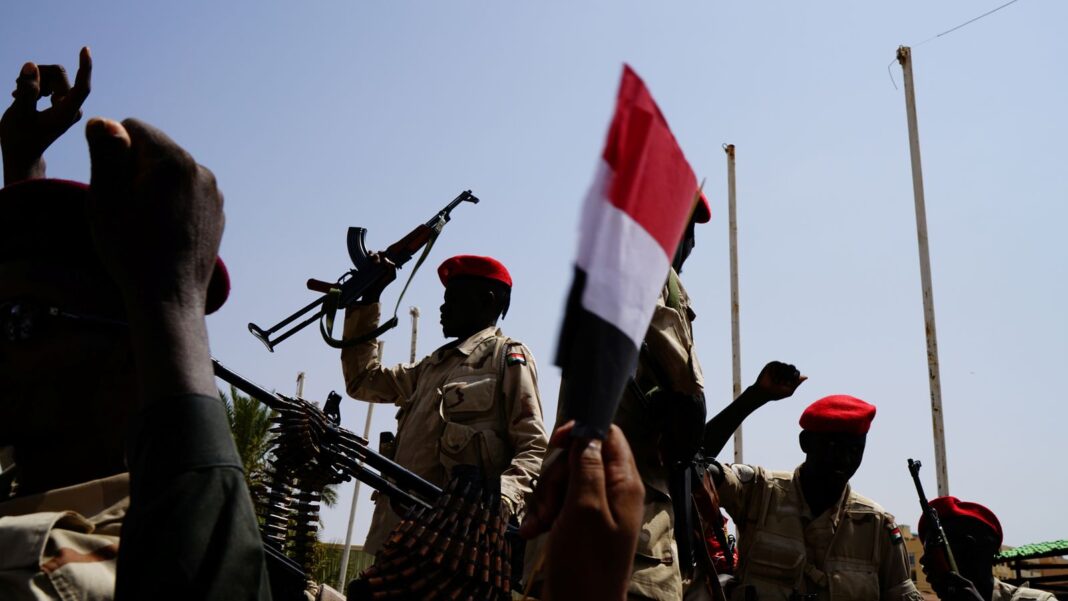The horror of sexual violence in Sudan’s conflict is ongoing and spreading.
A war waged on the bodies of women and girls by a militia hell-bent on conquering the country at every level.
Warning: This article contains descriptions of sexual assault and rape some readers might find disturbing
Dr Shaza, a 25-year-old medical volunteer, says: “They came and took girls as young as 11 and 12 and rape them.
“They bring them back completely destroyed and dump them in the yard of the mosque.
“They were internally bleeding and we could only save some of them.”
Dr Shaza and her family fled their home in Al Hilaliya in eastern Al Jazira and are now living in tents in an empty plot of land in Shendi, a safe city just 150km northeast of Sudan’s besieged capital Khartoum.
Her hometown was targeted in a rampage by Rapid Support Forces (RSF), a paramilitary group born out of the janjaweed militias that terrorised civilians during the Darfur genocide and is currently at war with Sudan’s army for territorial control.
“They separated the men and the women then said if you don’t give us the gold and money we’ll take the women,” she says. “They beat us and slapped us.
“Even when they search women, they do cavity searches and say we are hiding gold and money in our bodies. They even pulled out sanitary towels.”
Please use Chrome browser for a more accessible video player
1:12
From November: RSF attacks farming villages leaving dozens dead
The make-shift displacement camp she lives in is getting cold as winter takes hold. The bone-chilling experiences survived by the women and girls around her makes life even colder.
“I know 36 women my age who have been raped, sexually harassed and beaten,” she says.
“As people fled the village, some girls jumped into the Nile to commit suicide – I know four of them personally.”
Reports of women killing themselves to avoid rape circulated online as the RSF ambushed town after town in eastern Al Jazira.

The RSF did not respond to questions from Sky News about the allegations. File pic: AP
As the fog of shock clears, cases of rape-related suicide are being confirmed. The stigma of being raped in the conservative, honour-based Sudanese society is too much to bear on top of the physical trauma.
“After beating us, they locked us in the room and raped our cousins,” one young man from the Al Jazira town Azraq says.
“After some time, their cries quietened. We were able to untie ourselves and after the shock we had, we had a bigger shock to come.”
He is testifying to a response officer from the Strategic Initiative for Women in the Horn of Africa (SIHA) in a voice note heard by Sky News.
“We found our two cousins had committed suicide,” he says in a grim tone of deflated grief. He told the SIHA response officer Adla that they did it by drinking hair dye.
“After fleeing, we found out that many of the girls in our village committed suicide from the same reason. They could not cope with what happened to them.”
SIHA has confirmed 29 cases of gang rape in Al Jazira’s towns since October 2021.
Two of the girls were underage, one died from her injuries and another took her own life, later found by their surviving relatives.
Read more on Sudan:
‘There is nothing’: Farmers on verge of mass starvation
Millions displaced by war now face new fight
‘Give me your daughter’ – Fear of families stranded in capital
SIHA regional director Hala Al Karib says: “90% of the cases we have verified are gang rape cases – women and girls raped by more than one person.
“The way it was done was very bold and systematic, separating the men and women and going door by door.”
She added that “what happened in Al Jazira is exactly what happened in Al Geneina in West Darfur”, and said: “Nobody could ever imagine that the scale of atrocities would reach the level it has in Sudan.
“I worked in Darfur 20 years ago. I worked with survivors of sexual violence then and saw victims as young as seven years old at the time.
“We assumed that we would have been learning at the time. But the denial of what Sudanese women in Darfur experienced is what has led to the current catastrophe.”
Sky News reached out to the RSF for a response regarding these allegations – which has so far failed to respond.
Anyone feeling emotionally distressed or suicidal can call Samaritans for help on 116 123 or email jo@samaritans.org in the UK.
In the US, call the Samaritans branch in your area or 1 (800) 273-TALK







